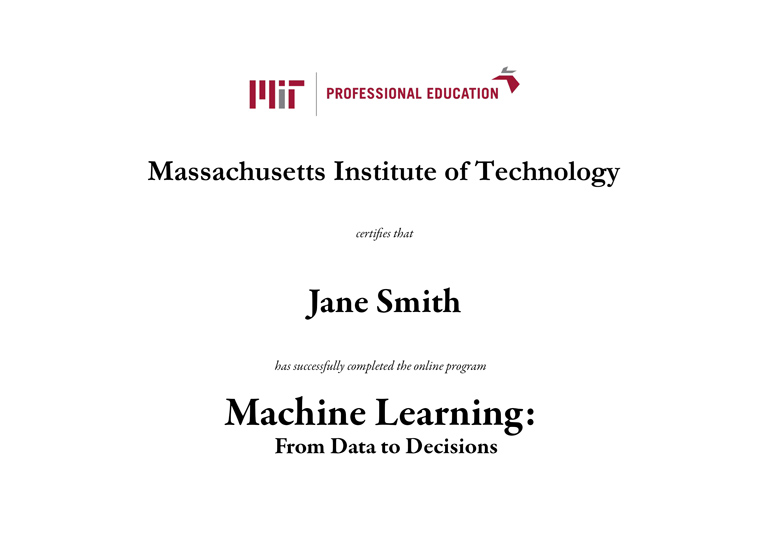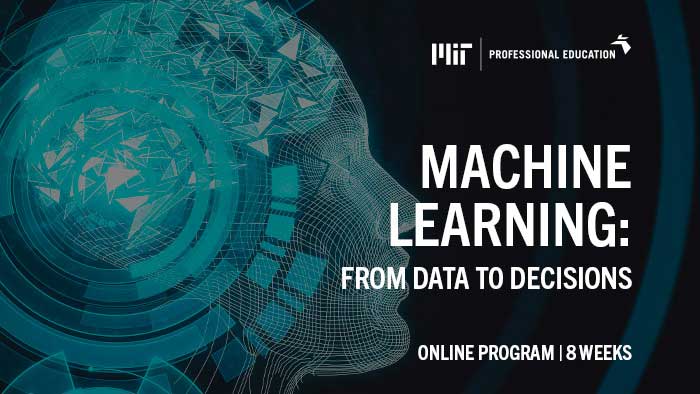Machine Learning as competitive advantage
Decision-making dictates every organization’s direction and development: Those responsible for making those decisions must be empowered to do so confidently using tools and data that eliminate chance and assure success.
Machine Learning, a branch of Artificial Intelligence, has been created to help answer this need. It is fast becoming a fundamental tool for making sound decisions by analyzing large quantities of data and events. Its objective: reducing spaces of uncertainty and arbitrariness through automatic learning and providing organizations and professionals the security needed to make impactful decisions.
80%
80% of business and technology leaders say that artificial intelligence is already pushing productivity in their workplaces.
Source: Narrative Science
61%
61% of marketing specialists say that artificial intelligence is the most important aspect of their data strategy.
Source: MeMSQL
40%
The technology behind today’s artificial intelligence can increase business productivity by up to 40%.
Source: Accenture
An online course to optimize decision-making
MIT Professional Education brings you closer to this new technology that is revolutionizing the global economy through an online course that guides professionals through the basics and the applications of Machine Learning. Participants will receive training in data analysis and comprehension, preparing them to fully master reliable, data-informed decision-making in their organizations.
The skills you will develop
1.
Data comprehension.
In a hyper-connected world, we are surrounded by data. As it gets harder every day to understand the information we are receiving, our first step is learning to gather relevant data and—more importantly—to understand it.
2.
Predictions.
Through supervised learning and data classification you will be able to make predictions. Additionally, you will discover basic concepts in machine learning, such as “neural networks”.
3.
Decision-making.
You will be capable of making effective decisions, eliminating spaces of uncertainty and arbitrariness through data analysis.
4.
Causal inferance
By correctly applying and evaluating observed experiences using Machine Learning we can infer relevant conclusions to drive strategy.
In addition, you will receive a Certificate of Completion
All the participants who successfully complete the online course Machine Learning: From Data to Decisions will receive an MIT Professional Education Certificate of Completion. Furthermore, participants will receive * MIT Continuing Education Units (CEUs)*.
To obtain CEUs, complete the accreditation confirmation, which is available at the end of the course. CEUs are calculated for each course based on the number of learning hours.
* The Continuing Education Unit (CEU) is defined as 10 contact hours of ongoing learning to indicate the amount of time they have devoted to a non-credit/non-degree professional development program.
To understand whether or not these CEUs may be applied toward professional certification, licensing requirements, or other required training or continuing education hours, please consult your training department or licensing authority directly.

This course is aimed at
- CEOs, MANAGERS, AND OTHER EXECUTIVES in various industries who lead teams with technical responsibilities.
- TECHNICAL PROFESSIONALS OR WITH TECHNICAL BACKGROUNDS that work with large amounts of data and want to take advantage of Machine Learning to improve decision-making processes.
Meet the instructors of this course
Listed in alphabetical order
PROF. DEVAVRAT SHAH
Professor in the department of Electrical Engineering and Computer Science at MIT

“How can leaders utilize data to gain a competitive advantage in their industries? What systematic steps can they take to use those data? Discover the answers to these questions with me in this course.”
Learn more
Devavrat Shah is an Andrew (1956) and Erna Viterbi Professor of the Department of Electrical Engineering and Computer Science at MIT and the faculty director of the MicroMasters in Statistics and Data Science program with the MIT Institute for Data, Systems, and Society. He also is a member of the Laboratory for Information and Decision Systems (LIDS) and the Operations Research Center (ORC) at MIT. He currently directs the Deshpande Center for Technological Innovation at MIT.
His current research interest is in developing large-scale machine learning algorithms for unstructured data, with particular interest in social data. He has made contributions to the development of “gossip” protocols and “message-passing” algorithms for statistical inference that have been pillars of modern distributed data processing systems.
He cofounded Celect, Inc., which has been part of Nike since 2019. In 2019, he cofounded Ikigai Labs with the mission of building self-driving organizations by empowering data business operators to make data-driven decisions with the ease of spreadsheets.
His work has been covered in popular press including The New York Times, Forbes, and Wired, and he has written several award-winning papers in machine learning, operations research, and computer science. He has also been awarded the 2010 Erlang prize from the INFORMS Applied Probability Society.



